The Equality State: the first state to grant women’s voting rights, and the first state to make abortion medication illegal.
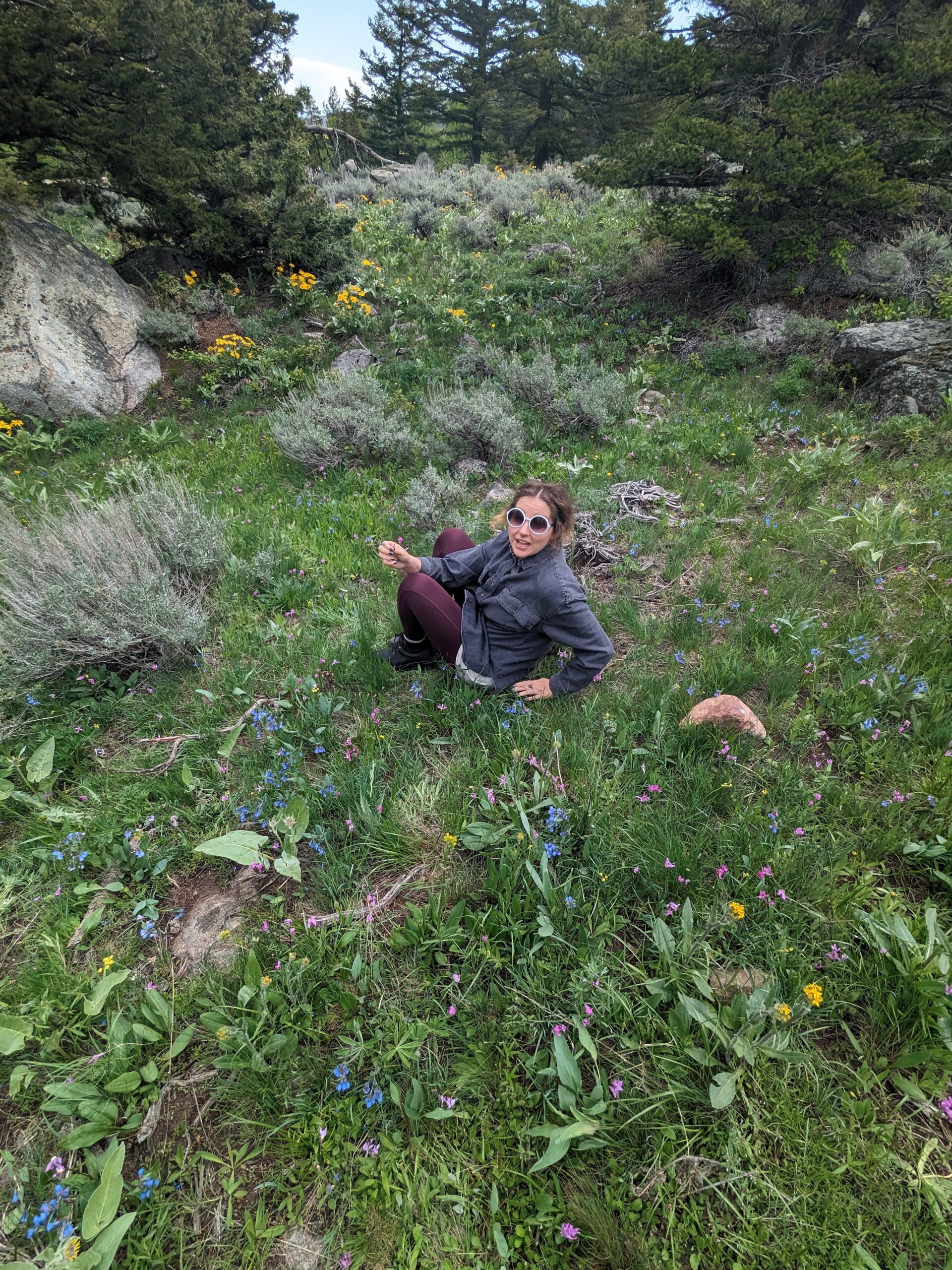
Growing up in Cheyenne, I had a cynical view of Wyoming’s nickname, “The Equality State.” My self-righteous teenage eyes rolled in my head at the sight of Susan B. Anthony’s statue in front of the Cheyenne Capitol building. “She’s not even from Wyoming,” I would tell people who already knew that fact. “And Wyoming only gave women the right to vote to increase its population enough to become a state,” I’d add for those who didn’t ask.
To my false-information-spreading credit, no one ever corrected me. First, the statue represents Esther Morris, the first woman to hold an office as Wyoming’s Justice of the Peace in 1870 (fifty years before the 19th Amendment gave all women nationwide the right to vote in 1920). Second, historians remain uncertain about why Wyoming successfully legislated women’s suffrage since no official document details the event except newspaper clippings announcing the bill’s triumph.
Let’s briefly consider the historical context: In 1869, the 15th Amendment granted universal suffrage to men, including formerly enslaved, Black men. That same year, with the transcontinental railroad’s completion, Wyoming became a coherent territory from pieces of Dakota, Idaho, and Utah. Republican President Ulysses S. Grant instated a Republican governor, and William Bright, a Democrat (conservative like the majority of Democrats and Wyoming residents in the late 19th century), was elected Territory Council President.1“Woman Suffrage,” National Geographic, accessed May 28, 2023, https://education.nationalgeographic.org/resource/woman-suffrage/.
Considering these circumstances, various reasons account for early woman suffrage in Wyoming. Regarding the conservative leanings of the Wyoming territory, one possible factor includes the desire to embarrass the Republican governor and boost the Democrats. Bright’s racism constitutes another potential reason. Originally from Virginia and opposed to the 15th Amendment, Bright introduced the woman suffrage bill claiming that if Black men vote, so should his wife (significantly, Mrs. Bright strongly supported woman suffrage). 2Tom Rea, “Right Choice, Wrong Reasons: Wyoming Women Win the Right to Vote,” WyoHistory.Org, accessed May 28, 2023, https://www.wyohistory.org/encyclopedia/right-choice-wrong-reasons-wyoming-women-win-right-vote.
Noting the ubiquitous racism in the Sweetwater Mining District (where both Esther Morris and the Brights resided), historian Michael Massie observes that “the town’s newspapers often printed derogatory and racist articles concerning Chinese and Blacks,” evidencing the general xenophobic atmosphere Bright contributed to.3 Michael Massie, “The Roots of Woman Suffrage in Wyoming,” Internet Archive, accessed May 28, 2023, https://archive.org/details/annalsofwyom621231990wyom/. Indeed, this mining area in the state’s center (in today’s Fremont County) played a significant role in the history of Wyoming woman suffrage. As the region’s population declined with the end of the gold rush, residents wanted to attract more people, particularly women (who constituted 24% of its population). Increasing the territory’s population–or making the region a more desirable place for the “right” (white) people to live–additionally compelled the case for women’s voting rights. 4Massie, “The Roots of Woman Suffrage in Wyoming”; Massie expands on the complicated feelings surrounding woman suffrage in the South Pass: “Ironically, South Pass City opposed woman suffrage as much as, or more than, any other Wyoming settlement at the same time that Bright ‘s sponsorship of the woman suffrage bill and Morris’ tenure as justice were focusing national attention on the town. The general opposition to woman suffrage included both sexes, for most of the women refused to become involved in politics— voting or otherwise. As a result of this attitude, Esther Morris, a Republican, was the only woman to attend South Pass City’s Democratic meeting in September, 1870, and only eight women, 11 percent of the eligible female electorate, voted in the ensuing elections.” Moreover, as Massie goes on to discuss, these feelings were quickly reversed: “By late 1871, most of the remaining citizens in the Sweetwater mining district had gradually accepted woman suffrage, particularly after witnessing Esther Morris’ success as a justice of the peace. Thus, the area’s antagonism toward woman suffrage was declining while opposition in the territory was increasing.” And judging by the lack of ethnic diversity in the state today, Wyoming, the equality state, carries on this legacy. 5According to Tennessee Jane Watson in an interview for Wyoming Public Radio with The Wyoming Community Foundation, while enrollment of non-white students in the public school system is on the rise, and non-white people make up 15% of the Wyoming population (which is already the least populated state in the U.S.), it is still a majority White state. (“Does Race Matter in Wyoming?” published on November 6, 2020, https://www.wyomingpublicmedia.org/open-spaces/2020-11-06/does-race-matter-in-wyoming.) Additionally, if you want to find the equivalent form of xenophobic pulse-taking like Massie’s study of 19th-century periodicals in the Sweetwater Mining Distritct, check out the Reddit threads regarding Wyoming. In this one, “In Riverton, Arrest Data Shows Large Racial Disparities Persist,” accesed on May 30, 2023, Wyomingites show their true colors: https://www.reddit.com/r/wyoming/comments/11osfyj/in_riverton_arrest_data_shows_large_racial/.

While we don’t know if any or all of these elements were actually discussed and debated as the bill became a law, we do know that Wyoming fought to keep women’s right to vote even at the risk of being denied statehood. In 1889, when Wyoming applied for statehood, the U.S. Congress challenged Wyoming’s recognition of woman suffrage. Wyoming didn’t back down, and when it became a state in 1890, Governor Francis E. Warren stated: “Our best people and in fact all classes are almost universally in favor of women suffrage. A few women and a few men still entertain prejudice against it, but I know of no argument having been offered to show its ill effects in Wyoming.” 6“Woman Suffrage.”
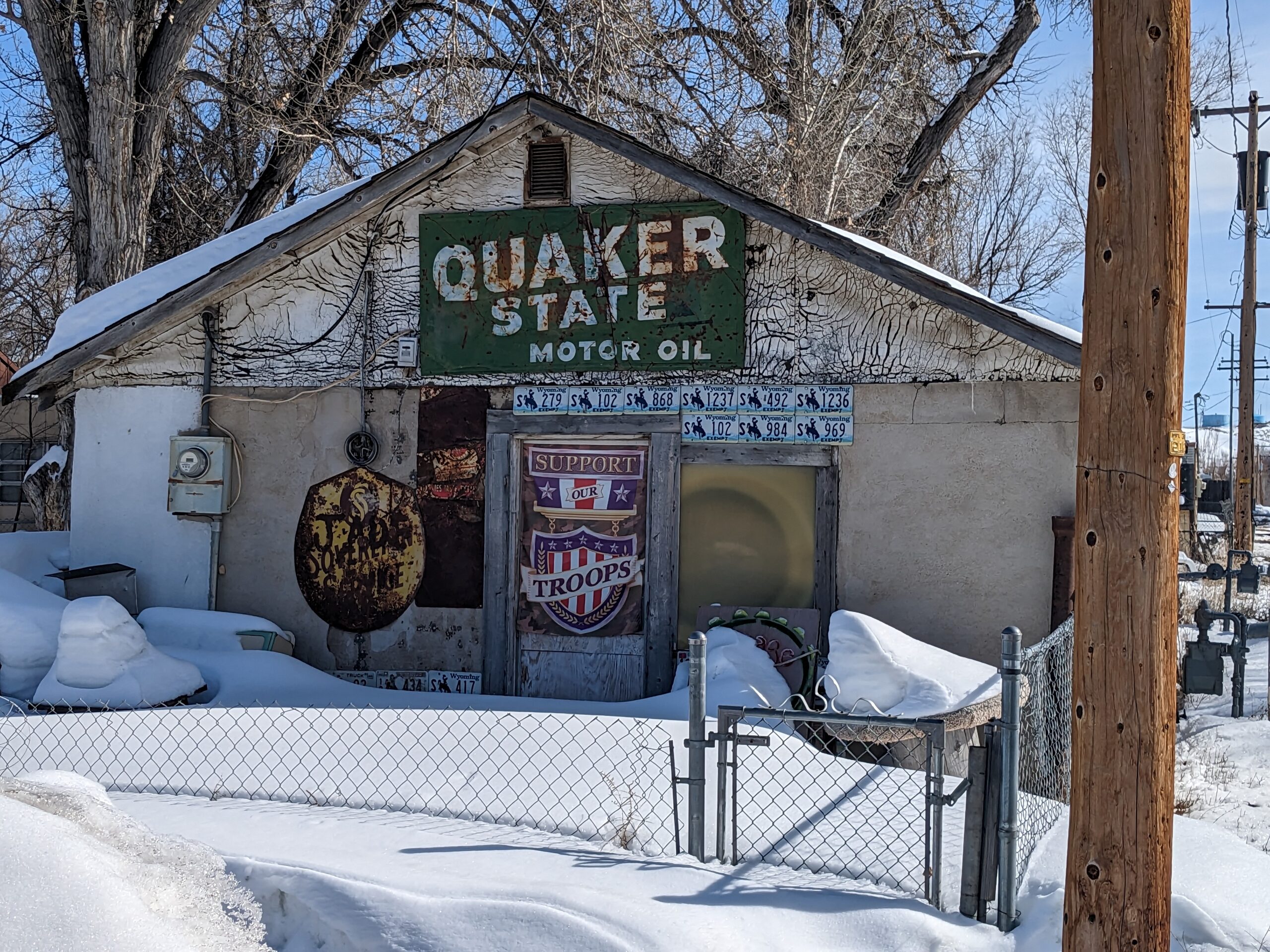
Thus, starting with woman suffrage, nuance, ambivalence, and irony abound in the history of women’s rights in Wyoming. As Massie points out, it’s undoubtedly incredibly ironic that Bright presented the bill for woman suffrage as an anti-Black saloon owner who might otherwise distance himself from the Temperance Movement and the abolitionist stance of the Suffragists. Despite the inexplicable success of the bill, though, Massie defensively boasts about Wyoming’s path to equality: “As some of the events associated with woman suffrage in Wyoming from 1869-71 prove, several unrelated ideas, both ideal and utilitarian, may suddenly create the opportunity for the birth of reform. The fact that Wyoming passed woman suffrage, refused to repeal it, and later insisted that it would never become a state without the reform should make its citizens proud that the reform was first ‘found’ in Wyoming.”7 Massie, “The Roots of Woman Suffrage in Wyoming.”
Yet, I don’t feel very proud. Maybe it’s because “several unrelated ideas, both ideal and utilitarian, may suddenly create the opportunity for the birth of reform” is a dispiriting way to achieve radical and necessary social reconstruction. To rephrase Massie, it doesn’t matter how reform is achieved as long as it is indeed achieved. So let’s celebrate the suspect self-interests of men who brought their conservative, anti-Black politics from the southern U.S. before inadvertently making one right thing happen in Wyoming!
Maybe, too, I can’t feel prideful because of the complicated ways racism and misogyny are imbricated in our national fabric. As the annals of the passing of the 15th and 19th amendments illuminate, this nation has repeatedly pitted white women against ethnic minorities, letting us fight each other for social-political visibility and viability and thereby precluding any enduring alliance for extensive and inclusive social justice. 8While Wyoming indeed ratified the Equal Rights Amendment (ERA) in 1973, guaranteeing equal rights for all U.S. citizens regardless of sex, the ERA never received enough votes in Congress to make it a nationally recognized and guaranteed amendment. I only point this out because the thirteenth amendment, which passed in 1865, abolished slavery and gave all men equal rights regardless of race. This defense of the rights of men regardless of race or country of origin and the subsequent snubbing of women as fully recognized citizens exemplifies the perpetually fraught social justice enterprise of simultaneously opposing racism and sexism. Moreover, the lack of constitutional language that guarantees the rights of all citizens regardless of sex (and this very much includes the reversal of Roe vs. Wade) has rendered queer and non-binary folks particularly vulnerable. Currently, we are witnessing a tumult of anti-Drag Queen and anti-trans legislation (that most disturbingly takes the form of denying children access to gender-affirming health care), which something like the ERA would have helped us better oppose.
Maybe, because this country’s history of law and politics has always been marked by ambivalence, irony, and other arbitrary factors, I only feel slight embarrassment. Why is it that when something “good” and “just” somehow gets legislated, we effuse regional and national pride about our unaccountable success instead of critiquing the blind spots of our praxis of democracy?
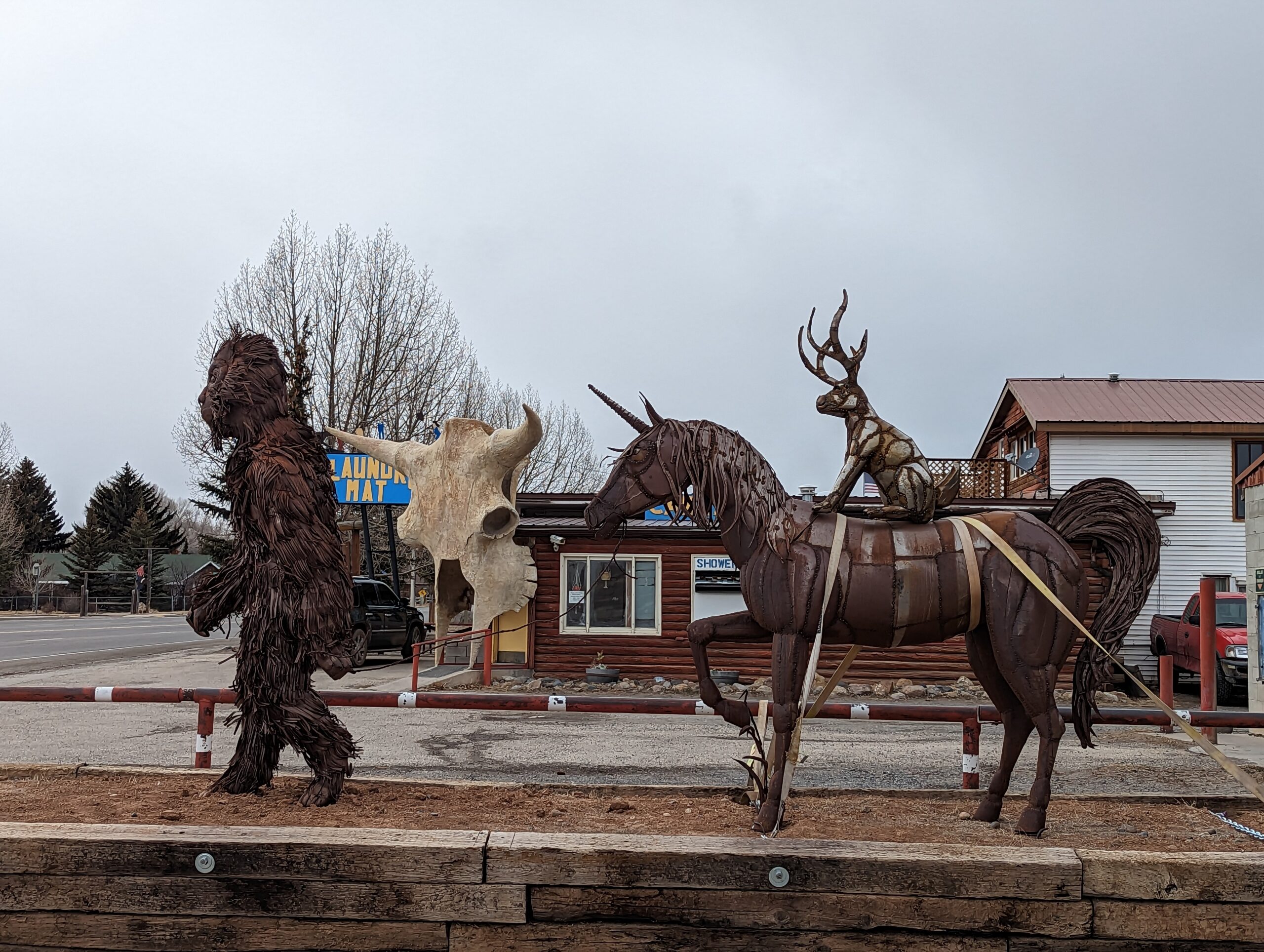
Last year, before I moved back to Wyoming, I felt a fleeting flurry of pride for my Wyomingite mother, currently a registered Independent, who momentarily registered Republican to vote for Liz Cheney (daughter of the incarnate of J.R.R. Tolkien’s Sauron, aka former Vice President, Dick Cheney) in her campaign against fellow Republican Harriet Hageman for the one Wyoming seat in the House of Representatives. 9I don’t think it’s a controversial point to argue that Dick Cheney is a power-hungry monster who used his advanced political position to expand executive power and amass his own personal wealth as much as possible. As Conor Friedersdorf reminds us in his article for The Atlantic, “Remembering Why Americans Loathe Dick Cheney, ”he had an approval rating of 13% by the time he left his office as the Vice President. And for many good reasons: During the Iraq war, he and Donald Rumsfeld created their own “alternative intelligence agency” in order to hype up the need for war by spreading false information and thereby cementing his own power and authority while getting rich through his private business association with Halliburton. Friedersdorf expands on how Cheney achieved slimeball status: “After Cheney enriched himself by exploiting contacts with various corrupt Arab autocrats that he made while drawing a public salary, he returned to public life as vice president. Halliburton donated to his campaign, and got numerous lucrative contracts during the Bush administration’s tenure, even as it was discovered to have overcharged the U.S. for prior services rendered.” Most notably, in terms of faulty information, Cheney and Rumsfeld claimed there was evidence of “weapons of mass destruction” in Iraq when they knew they were non-existent. They also falsely linked Saddam Hussein with the terrorist group Al Qaeda. Cheney also has admitted to being instrumental in instituting waterboarding, a form of torture, as a legit interrogation tactic during the Bush Administration. And, he ensured that innocent prisoners stayed indefinitely at Guantanamo Bay by giving the U.S. power to detain these people without allowing them a fair trial. Friedersdorf also reminds us that Cheney initiated “an NSA operation to monitor the phone calls and emails of U.S. citizens without a warrant, part of which later became known as the Terrorist Surveillance Program.” For a full account, see Friedersdorf’s article, published on August 30, 2011: https://www.theatlantic.com/politics/archive/2011/08/remembering-why-americans-loathe-dick-cheney/244306/. This turn of events particularly highlights the torturous ambivalence of Wyoming politics and the women who spearhead them.
When Cheney lost favor with her own party after leading the legal hearings on the 2021 January Sixth Insurrection on the U.S. government (carried out by the Proud Boys, President Trump’s ride-or-dies who stormed the Capitol under his blessing), she gained favor among moderates and liberals opposed to Trump. In comparison to Hageman, a Trump-endorsed pro-gun, anti-abortion, anti-immigration neoconservative, Cheney, a Trump-reviled pro-gun, anti-abortion, anti-immigration neoconservative, looked appealing to registered voters who would never otherwise promote her political platforms.
Seen on paper and taken out of context, Cheney and Hageman might as well be the same woman, and my mom’s brief political deflection doesn’t make sense. Yet, how Cheney went against her party to criticize Trump and his indefensible claims of voter fraud during the 2020 presidential election made my family actually root for Cheney. In other words, in a stubbornly Red state like Wyoming (which, I might add, is the least populated and, so, least politically important state from a national perspective), you applaud yourself for political radicalism by splitting hairs and voting for the lesser of two evils.
Cheney lost this election, and Hageman went on to defeat the Democrat candidate, Lynette Grey Bull, an American Indian activist who “has been a longtime advocate for missing and slain Indigenous women and girls.” Grey Bull would have been the right choice for an equality state with a long history of supporting women’s rights. But, in 2020, Grey Bull lost to Cheney by a 44-point margin in the Wyoming House race and was expected to lose again whether she faced Cheney or Hageman (and she lost to Hageman by a 37-point margin).10Mead Gruver, “Hageman Faces Grey Bull for US House After Beating Cheney,” AP News, published on November 8, 2022, https://apnews.com/article/2022-midterm-elections-abortion-gun-politics-native-americans-wyoming-d6cf0db831edeaed63462932244de72c.
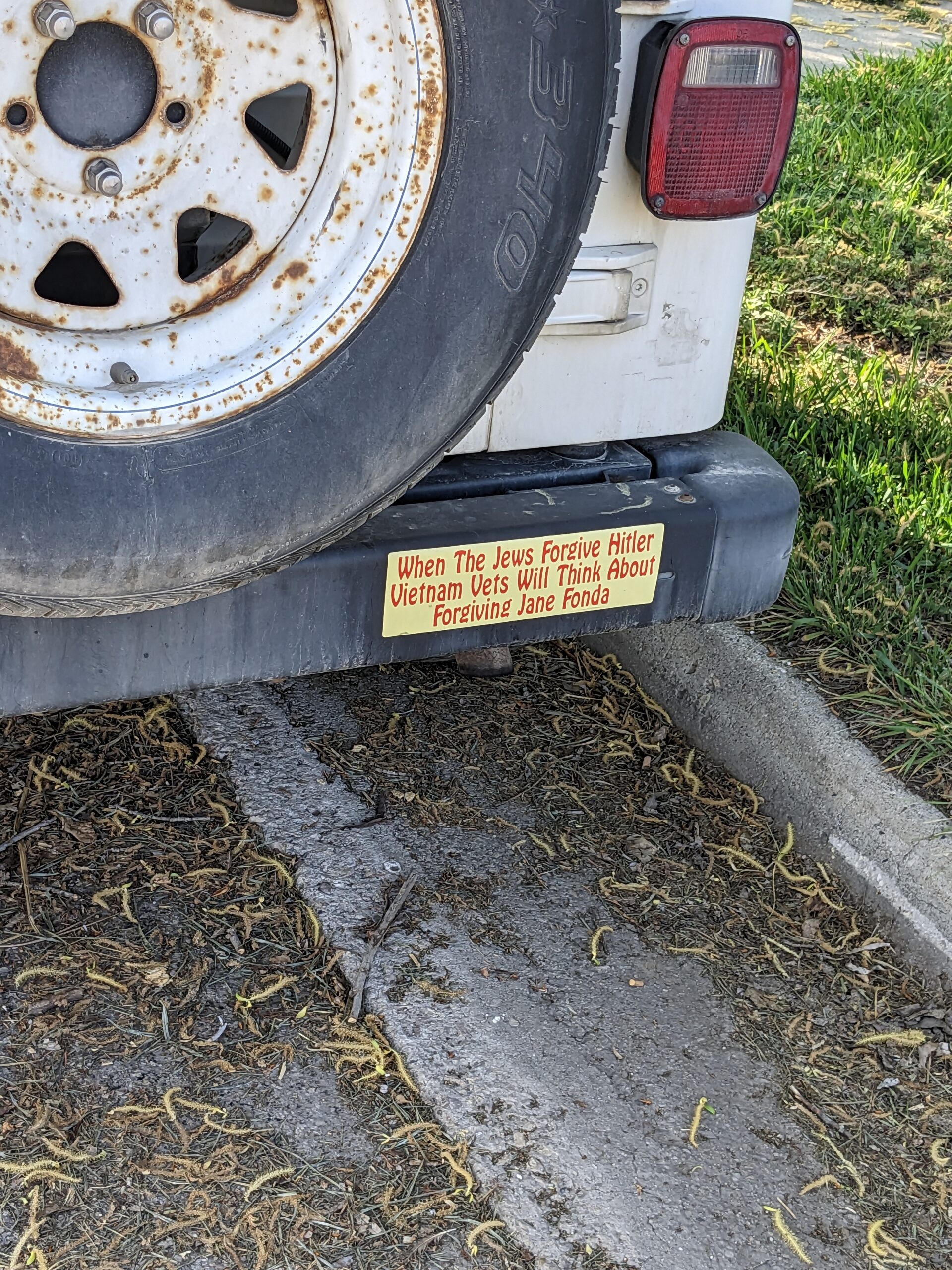
Recently, with the overturning of Roe vs. Wade, Wyoming again graced national news headlines by becoming the first state to try to ban abortion pills. Another first for women in Wyoming history! This past March, Republican Governor Mark Gordon signed a bill into law prohibiting all forms and dissemination of “any drug for the purpose of procuring or performing an abortion.” 11Eric Lutz, “Wyoming Becomes First State to Ban Abortion Pills,” Vanity Fair, published March 18, 2023, https://www.vanityfair.com/news/2023/03/wyoming-becomes-first-state-to-ban-abortion-pills; We should note that Wyoming has stayed conservative throughout its political history even as the reputation for conservatism switched from Democrats to Republicans after the 19th century. Such a ruling was an additional twist of the knife by thhttps://www.vanityfair.com/news/2023/03/wyoming-becomes-first-state-to-ban-abortion-pillse anti-abortion legislation sweeping the country since those supporting women’s medical rights counted on the availability of these prescription drugs to help women in crisis facing limited or banned abortion resources.
Then, a judge in Teton County temporarily blocked Gordon’s law, ruling that a 2012 amendment to the state’s constitution (intended to stop President Barack Obama’s Affordable Care Act) made it a citizen’s right to make their own healthcare decisions. 12Annika Kim Constantino, “Wyoming Abortion Ban Blocked Due to Obamacare-Era Amendment,” CNBC.com, published March 24, 2023, https://www.cnbc.com/2023/03/24/wyoming-abortion-ban-blocked-due-to-obamacare-era-amendment.html#:~:text=The%20ban%20prohibits%20abortion%20in,prison%20and%20a%20%2420%2C000%20fine. In other words, Wyoming’s political conservatism, arguably in part motivated by racist opposition to a Black man’s political authority, once again forced Wyoming’s hand in upholding women’s rights. Sometimes history refracts itself.
As I write this essay in May 2023, Judge Melissa Owen’s blocking of Wyoming’s ban on abortion pills holds even as the debate about whether or not abortion constitutes “health care” continues. I also find myself in Fremont County (in Lander, Wyoming), which still flaunts itself as the birthplace of women’s suffrage.
If you visit Lander, you’ll find Wyoming Catholic College, which is undeniably related to the “Real Men Choose Life” signs posted in residents’ yards and the “Pro-Life” stickers plastered on young women’s laptops in the coffee shops. The sloganeering of masculinity in conjunction with anti-abortion politics always gives me pause. Did anyone ever question the paternalistic, Christian upholding of fruitful, Adam-and-Eve-not-Adam-and-Steve nuclear family life? At least in Lander, sex sells sex inequality.
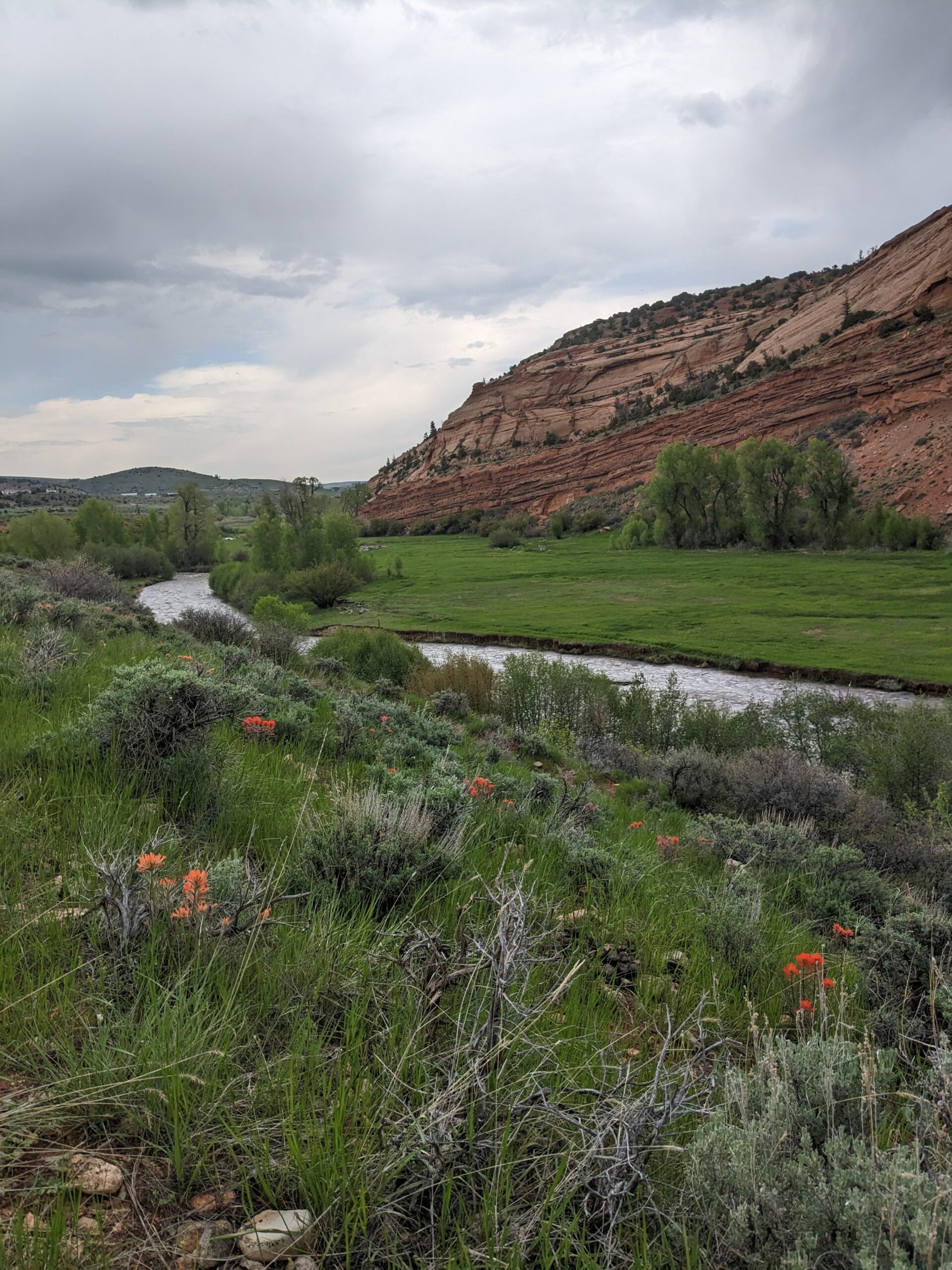
Reflecting on my own coming-of-age in Cheyenne in the 1990s, I realized that abortion was always banned in Wyoming, just not officially. In fact, while I know women from Wyoming who have had abortions, I don’t know anyone who had her abortion performed in Wyoming. I also realized that when I drove across state lines from Wyoming into Colorado (on my way toward the liberal oasis of Denver for music, art, and culture), those Pro-Life billboards showing an ultrasound photo of a fetus with a heartbeat line were strategically placed. They were meant to be seen as I retreated from Wyoming, on the highway to hell, to the land of Godless abortion access.
Looking into the history of abortion clinics in Wyoming, the first article to appear in my search engine results was an Associated Press article about how, nearly one year ago, an anti-abortion, 22-year-old female college student burned down a new, soon-to-open abortion clinic in Casper. The clinic eventually opened despite the latest tenuous and restrictive abortion bans in the state (none of which existed when it originally intended to welcome patients). Before opening this clinic in Casper, only medication abortions were provided in a women’s health center in Jackson (in the far northwest corner of the state, below Yellowstone National Park, where the population has been slowly declining because no one but Dick Cheney and other millionaires can afford to live there). Moreover, as Mead Gruver for the AP reports, “[s]urgical abortions haven’t been available in a dedicated Wyoming clinic in at least a decade.” 13Mead Gruver, “Wyoming Abortion Clinic Opens Despite Arson, Legal Obstacles,” AP News, publised April 20, 2023, https://apnews.com/article/wyoming-abortion-clinic-arson-opens-f149c165fdaa0956fecdbff75488f7cb.
I acknowledge the changed tone in this essay since I began it by academically laying out the history of Wyoming woman suffrage. I’m not trying to pivot into an argument for my Pro-Choice politics and further ponder the internalized misogyny that has young women at the forefront of anti-abortion activism. I know this debate is a true screaming match in which the only side we hear is our own. Yet, politics get more personal as we move into our contemporaneity.
In truth, I’ve screamed in futile rage at the Pro-Life billboards I continue to see peppering the desolate flat prairie you contend with when you drive through Wyoming. The billboards don’t show fetuses and heartbeats anymore; they exhibit babies and young children with pleading eyes. One depicts a little girl in a pink leotard and tutu with a thought bubble reading: “When I grow up, I want to be a ballerina!”
“AND WHO WILL PAY FOR YOUR EXPENSIVE BALLET LESSONS?” I have shrieked at her, an innocent poster child for a fight she is unaware of. “WHO IS GOING TO PAY FOR YOUR BIRTH,” I add, myself a married, childless adult without health care who could not afford a birth even if I decided to carry an unplanned pregnancy to term before putting the baby up for adoption. And this is a horrible reason–being poor!–to have to give up a child you sacrifice nine months of physical comfort for before getting a perineal tear and praying to God that you aren’t another victim of the inexplicably high maternal mortality rates in this obscenely wealthy, “developed” nation.
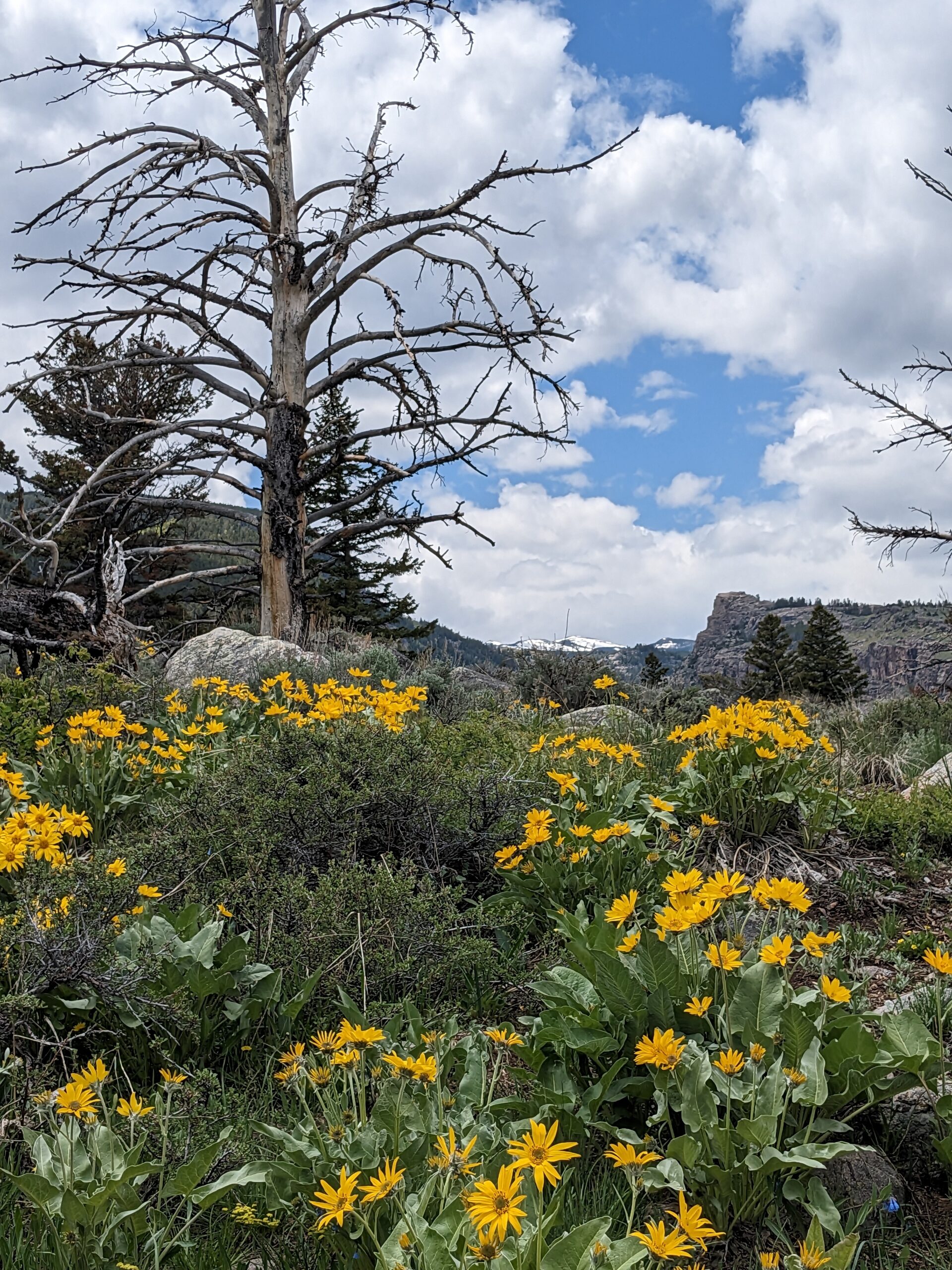
If we cherish life, why aren’t we working on making this world liveable for all people with heartbeats? Why not just open up a free dance studio for the economically depressed?
But look at me, getting sucked into “preaching to the choir,” rekindling the holier-than-thou tone of my radical youth. What was I talking about again? Oh, yes. Wyoming: the equality state. Or, riffing on its other nickname, the cowboy state where cowboys granted women suffrage so women could vote against their emancipation. Big Wyoming, where, for at least a limited time, you can get a medication abortion while two women’s health clinics are left standing to cover a state the size of the United Kingdom.
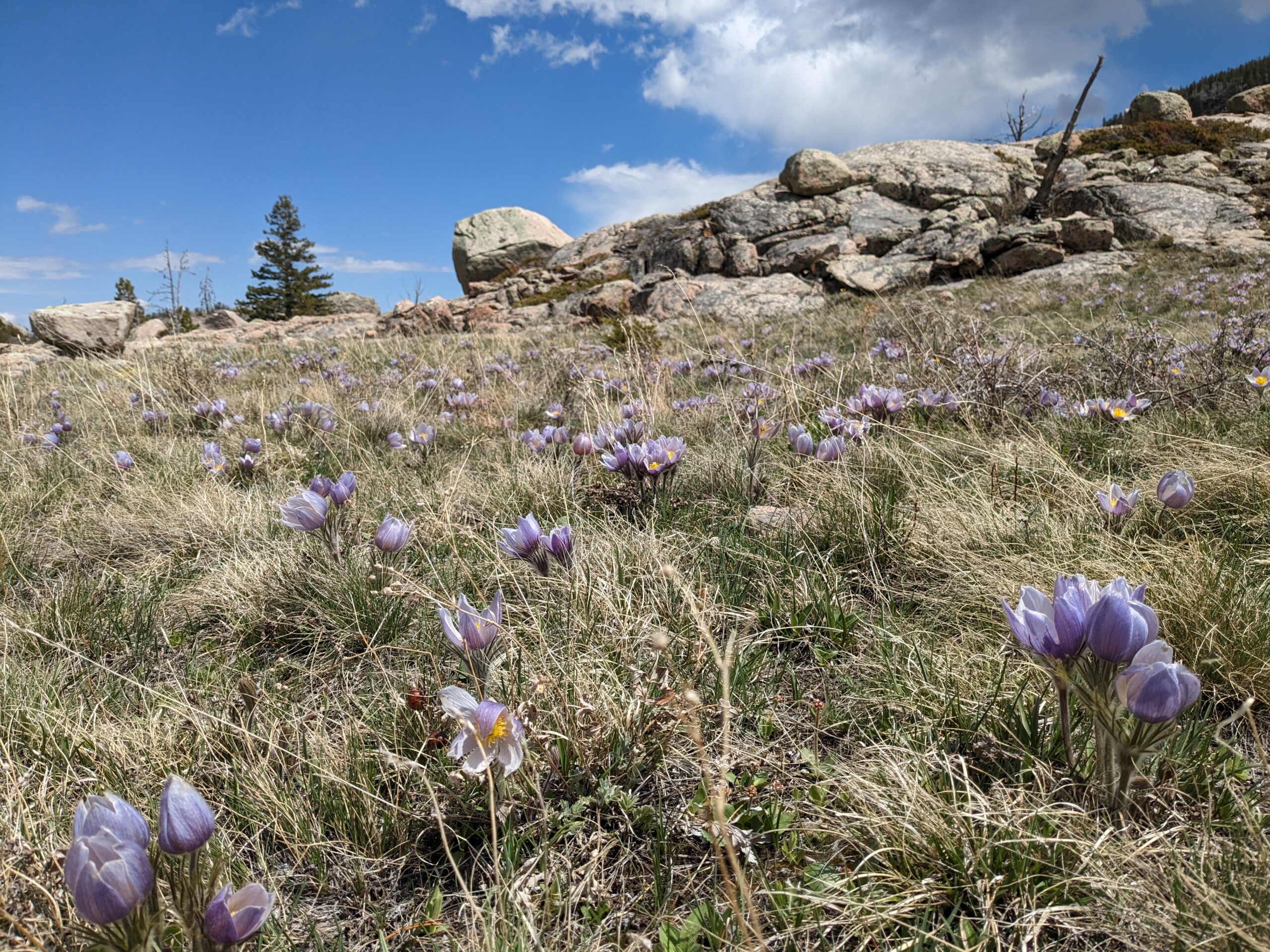
- 1“Woman Suffrage,” National Geographic, accessed May 28, 2023, https://education.nationalgeographic.org/resource/woman-suffrage/.
- 2Tom Rea, “Right Choice, Wrong Reasons: Wyoming Women Win the Right to Vote,” WyoHistory.Org, accessed May 28, 2023, https://www.wyohistory.org/encyclopedia/right-choice-wrong-reasons-wyoming-women-win-right-vote.
- 3Michael Massie, “The Roots of Woman Suffrage in Wyoming,” Internet Archive, accessed May 28, 2023, https://archive.org/details/annalsofwyom621231990wyom/.
- 4Massie, “The Roots of Woman Suffrage in Wyoming”; Massie expands on the complicated feelings surrounding woman suffrage in the South Pass: “Ironically, South Pass City opposed woman suffrage as much as, or more than, any other Wyoming settlement at the same time that Bright ‘s sponsorship of the woman suffrage bill and Morris’ tenure as justice were focusing national attention on the town. The general opposition to woman suffrage included both sexes, for most of the women refused to become involved in politics— voting or otherwise. As a result of this attitude, Esther Morris, a Republican, was the only woman to attend South Pass City’s Democratic meeting in September, 1870, and only eight women, 11 percent of the eligible female electorate, voted in the ensuing elections.” Moreover, as Massie goes on to discuss, these feelings were quickly reversed: “By late 1871, most of the remaining citizens in the Sweetwater mining district had gradually accepted woman suffrage, particularly after witnessing Esther Morris’ success as a justice of the peace. Thus, the area’s antagonism toward woman suffrage was declining while opposition in the territory was increasing.”
- 5According to Tennessee Jane Watson in an interview for Wyoming Public Radio with The Wyoming Community Foundation, while enrollment of non-white students in the public school system is on the rise, and non-white people make up 15% of the Wyoming population (which is already the least populated state in the U.S.), it is still a majority White state. (“Does Race Matter in Wyoming?” published on November 6, 2020, https://www.wyomingpublicmedia.org/open-spaces/2020-11-06/does-race-matter-in-wyoming.) Additionally, if you want to find the equivalent form of xenophobic pulse-taking like Massie’s study of 19th-century periodicals in the Sweetwater Mining Distritct, check out the Reddit threads regarding Wyoming. In this one, “In Riverton, Arrest Data Shows Large Racial Disparities Persist,” accesed on May 30, 2023, Wyomingites show their true colors: https://www.reddit.com/r/wyoming/comments/11osfyj/in_riverton_arrest_data_shows_large_racial/.
- 6“Woman Suffrage.”
- 7Massie, “The Roots of Woman Suffrage in Wyoming.”
- 8While Wyoming indeed ratified the Equal Rights Amendment (ERA) in 1973, guaranteeing equal rights for all U.S. citizens regardless of sex, the ERA never received enough votes in Congress to make it a nationally recognized and guaranteed amendment. I only point this out because the thirteenth amendment, which passed in 1865, abolished slavery and gave all men equal rights regardless of race. This defense of the rights of men regardless of race or country of origin and the subsequent snubbing of women as fully recognized citizens exemplifies the perpetually fraught social justice enterprise of simultaneously opposing racism and sexism. Moreover, the lack of constitutional language that guarantees the rights of all citizens regardless of sex (and this very much includes the reversal of Roe vs. Wade) has rendered queer and non-binary folks particularly vulnerable. Currently, we are witnessing a tumult of anti-Drag Queen and anti-trans legislation (that most disturbingly takes the form of denying children access to gender-affirming health care), which something like the ERA would have helped us better oppose.
- 9I don’t think it’s a controversial point to argue that Dick Cheney is a power-hungry monster who used his advanced political position to expand executive power and amass his own personal wealth as much as possible. As Conor Friedersdorf reminds us in his article for The Atlantic, “Remembering Why Americans Loathe Dick Cheney, ”he had an approval rating of 13% by the time he left his office as the Vice President. And for many good reasons: During the Iraq war, he and Donald Rumsfeld created their own “alternative intelligence agency” in order to hype up the need for war by spreading false information and thereby cementing his own power and authority while getting rich through his private business association with Halliburton. Friedersdorf expands on how Cheney achieved slimeball status: “After Cheney enriched himself by exploiting contacts with various corrupt Arab autocrats that he made while drawing a public salary, he returned to public life as vice president. Halliburton donated to his campaign, and got numerous lucrative contracts during the Bush administration’s tenure, even as it was discovered to have overcharged the U.S. for prior services rendered.” Most notably, in terms of faulty information, Cheney and Rumsfeld claimed there was evidence of “weapons of mass destruction” in Iraq when they knew they were non-existent. They also falsely linked Saddam Hussein with the terrorist group Al Qaeda. Cheney also has admitted to being instrumental in instituting waterboarding, a form of torture, as a legit interrogation tactic during the Bush Administration. And, he ensured that innocent prisoners stayed indefinitely at Guantanamo Bay by giving the U.S. power to detain these people without allowing them a fair trial. Friedersdorf also reminds us that Cheney initiated “an NSA operation to monitor the phone calls and emails of U.S. citizens without a warrant, part of which later became known as the Terrorist Surveillance Program.” For a full account, see Friedersdorf’s article, published on August 30, 2011: https://www.theatlantic.com/politics/archive/2011/08/remembering-why-americans-loathe-dick-cheney/244306/.
- 10Mead Gruver, “Hageman Faces Grey Bull for US House After Beating Cheney,” AP News, published on November 8, 2022, https://apnews.com/article/2022-midterm-elections-abortion-gun-politics-native-americans-wyoming-d6cf0db831edeaed63462932244de72c.
- 11Eric Lutz, “Wyoming Becomes First State to Ban Abortion Pills,” Vanity Fair, published March 18, 2023, https://www.vanityfair.com/news/2023/03/wyoming-becomes-first-state-to-ban-abortion-pills; We should note that Wyoming has stayed conservative throughout its political history even as the reputation for conservatism switched from Democrats to Republicans after the 19th century.
- 12Annika Kim Constantino, “Wyoming Abortion Ban Blocked Due to Obamacare-Era Amendment,” CNBC.com, published March 24, 2023, https://www.cnbc.com/2023/03/24/wyoming-abortion-ban-blocked-due-to-obamacare-era-amendment.html#:~:text=The%20ban%20prohibits%20abortion%20in,prison%20and%20a%20%2420%2C000%20fine.
- 13Mead Gruver, “Wyoming Abortion Clinic Opens Despite Arson, Legal Obstacles,” AP News, publised April 20, 2023, https://apnews.com/article/wyoming-abortion-clinic-arson-opens-f149c165fdaa0956fecdbff75488f7cb.
Leave a Reply